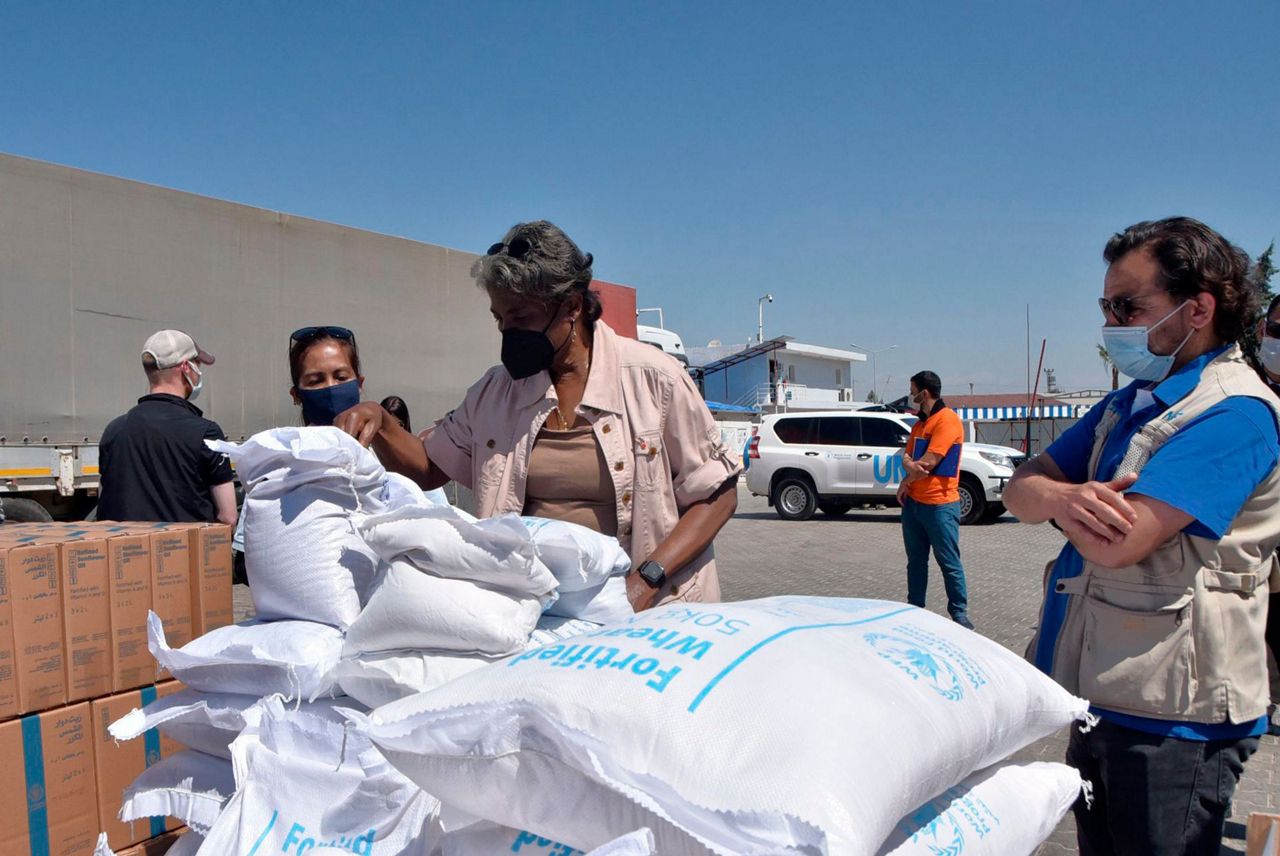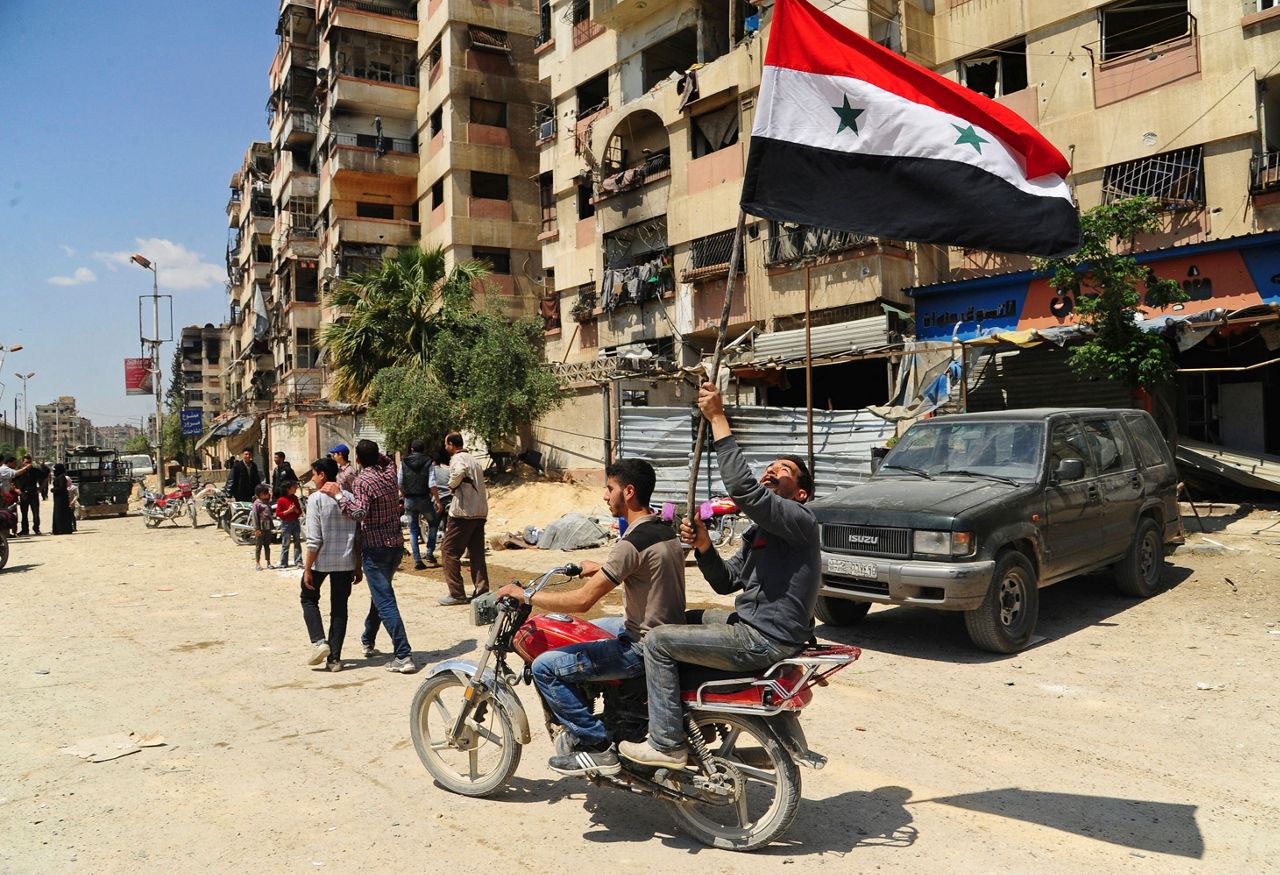BEIRUT (AP) — A leading rights group warned Thursday that millions of Syrians risk losing access to lifesaving aid, including food and COVID-19 vaccines, if Russia manages to block at the U.N. Security Council the use of the last remaining cross-border corridor for U.N. aid into rebel-held northwestern Syria.
The warning came as activists and rescuers said Syrian government shelling of several northwestern villages killed at least 11 people and sent hundreds fleeing on Thursday.
The onslaught is part of an apparent escalation of Syrian military operations in the rebel-held enclave. The northwest is home to nearly 4 million people, most of them displaced and living in shelters, dependent on U.N. aid.
The U.N. Security Council mandate for humanitarian aid deliveries from Turkey to Syria’s opposition-held region expires July 10. Veto-wielding Russia, Damascus’ close ally, has been pressing for the closure of the last remaining aid crossing corridor into the area, insisting the Syrian government should control all assistance going into the country — even to areas outside its control.
The New York-based Human Rights Watch said that closing Bab al-Hawa border crossing with Turkey for U.N. aid threatens to totally shut down humanitarian operations most of the area’s residents depend on.
In its report, HRW said U.N. agencies will no longer have authorization to procure supplies or carry out or finance others’ aid work, particularly during emergencies such as the ongoing military campaign in Idlib or waves of displacement. The U.N., for instance, pays the salaries of 800 doctors and 2,000 nurses there.
A new “humanitarian calamity” will be unleashed on the northwest if Security Council members fail to renew the mandate for aid deliveries, HRW said. At least 75% of the people there depend on aid to meet their basic needs. Some 85% receive the aid from about 1,000 trucks that cross through Bab al-Hawa from Turkey each month, according to the U.N.
“If Russia shuts down those trucks, there won’t be any way of getting food to those people and they won’t have food,” said Gerry Simpson, associated crisis and conflict director at HRW.
Northwest Syria was also among the last places in the world to receive COVID-19 vaccines, with U.N.-secured 55,000 shots reaching the territory for a May inoculation campaign.
Simpson told The Associated Press that if the corridor is shut, it is “unclear how and whether any further vaccines would reach the area.” The United States, the U.N and other European countries are campaigning for the crossing to remain open for at least another year.
Syria's civil war has left the country divided, much of its pre-war population displaced and its infrastructure in ruins. Nearly half a million people have been killed while tens of thousands have disappeared.
Last year, and with threats of a Russian veto, the Security Council officially closed three border crossings into Syria — from Iraq, Jordan and Turkey. That shutdown left over 1 million people in northeast Syria, another area outside government-control and where aid used to cross from Iraq, in extreme need, according to the U.N. It forced 19 out of 50 U.N.-supported health centers to shut while authorities struggled to meet essential needs to fight the pandemic.
Sara Kayyali, Syria researcher with HRW, said if Russia vetoes the resolution to extend the use of Bab al-Hawa, that risks sidelining the U.N. in coordinating humanitarian and emergency responses in Syria.
Thursday's shelling hit Ablin village in Idlib where opposition fighters and militants still hold territory. Rescue workers, known as White Helmets who operate in opposition-held areas, said a mother and her child and at least nine other civilians were among those killed. At least 10 shells landed in Ablin, they said.
Turkey and Russia, who support rival parties in Syria’s 10-year conflict, had reached a cease-fire deal in March 2020 that stopped a Russian-backed government offensive on Idlib. But military operations have not totally ceased, with limited violence breaking out occasionally as government forces try to make piecemeal advances in the enclave dominated by the al-Qaida-linked militant group, Hayat Tahrir al-Sham.
Mark Cutts, the U.N.’s deputy regional humanitarian coordinator for Syria, tweeted his condemnation Wednesday of what he called the “big escalation in artillery shelling by Syrian government forces in southern Idlib.” He said the shelling has caused civilian casualties and hit near a camp for displaced people, destroying a compound used as a school.
Mohammed Halaj, an aid worker who coordinates between local groups and the U.N. emergency responses, said at least 110 families — over 600 people — have fled the shelling.
Copyright 2021 The Associated Press. All rights reserved. This material may not be published, broadcast, rewritten or redistributed without permission.




